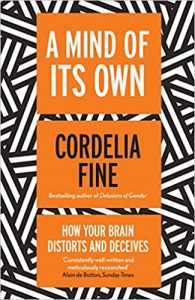 A Mind of Its Own – How Your Brain Distorts and Deceives
A Mind of Its Own – How Your Brain Distorts and Deceives
The human brain is a wonderful thing to behold – not much to look at and hold, but far more powerful and versatile than any man made computer or artificial intelligence device. However, as someone wise once said, each advantage has an equal and opposite disadvantage, and in the case of the human brain, one of these disadvantages is that it can distort reality and jump to conclusions, trying to be too clever.
I hasten to make it clear, this is not an intentional process. But much of the human brains power comes from an element of anticipation and pre processing – for example if you touch something hot, you start to flinch and move away before your brain has registered pain in concious awareness, as other quicker brain systems have already acted. A protective flinch is one thing, but the brain also interprets a lot of what we hear, see and feel, to give us quick and nuanced responses in ways we are not aware. So far so good, but that process induces certain biases – nominative determinism is a well known and perhaps fun one, but there are other more subtle biases in how we see ourselves others and the world around us, and how we react. Factors as diverse as childhood, time of day, diet and mood can influence responses; likewise our brains can be “primed” by scientists to exhibit certain biases.
The author is a Professor of the History and Philosophy of Science, so is well equipped to help us explore some of these biases, as she does so variously describing our brains as Vain, Immoral, Deluded. Pig Headed, Secretive, Weak Willed and Bigoted. Ouch! But all these traits are a part of how our brain filters and presents information and senses to us efficiently. Of course the flip side is the biases can be manipulated nefariously, and they can also set the seeds for Mental Health concerns. She explores these topics with humour and in a readable and approachable manner, with, at least for me, the right level of detail and interest. Unusually for a neuroscience based book approaching 15 years old, it still feels contemporary.
For anyone interested in how the brain misleads and distorts, this certainly is a useful and interesting read. Whilst most of its content I had covered before, it was certainly a welcome refresher, and equally useful to see some aspects under a different light.
